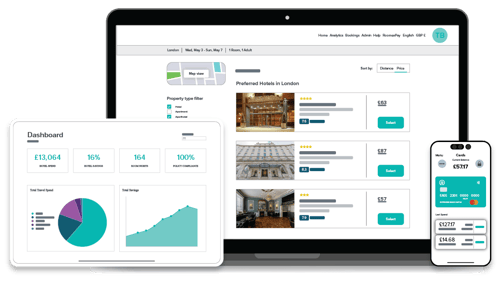U.K. construction suppliers have accounted for their own VAT for the last 50 years. Beginning 1 March 2021, the recipient will now account for VAT rather than the supplier. The main reason for this change is to tackle fraud worth millions of pounds per year. Typically the fraud is caused when suppliers (often subcontractors) charge the recipient (main contractor) VAT but ‘disappear' before passing these sums on to the HMRC.
What does reverse charge mean?
According to the U.K. government website, the introduction of a reverse charge does not change the liability of the supply of the specified services. What does change is the way in which the VAT on those supplies is accounted for. Rather than the supplier charging and accounting for the VAT, the recipient of those supplies accounts for the VAT.
If you’re a main contractor:
- Confirm subcontractor or supplier is VAT registered
- Pay subcontractors EXCLUSIVE of VAT and account for the appropriate VAT that would have been due
- Record (in your bookkeeping system) the VAT that would have been due
- Add the details needed to record VAT to the invoice that the VAT registered subcontractor sends you, along with the wording to remind you to account for the VAT via the reverse charge
- Charge yourself VAT on subcontractors services
- Pay the VAT sums that would have been paid to the subcontractor to HMRC in VAT returns
If you’re a subcontractor:
- Confirm that the contractor is VAT registered
- Issue domestic reverse charge VAT invoices to main contractors. Be sure that these invoices include ‘Reverse VAT rules apply and the customer must account for VAT’
- You will no longer receive VAT from customers to send to HMRC
- After you’ve issued this reverse charge - you are NOT responsible for charging and accounting for VAT
Check this out to see how the Construction Industry Scheme defines a contractor and a subcontractor.
Does this new reverse charge apply to my business?
Are you an individual or business registered for VAT in the UK and sell to other VAT registered businesses AND provide one of the following specified services under Construction Industry Scheme under section 74 of the Finance Act 2004. These are:
- Construction, alteration, repair, extension, demolition or dismantling of buildings or structures (whether permanent or not), including offshore installations
- Construction, alteration, repair, extension or demolition of any works forming, or to form, part of the land, including (in particular) walls, roadworks, power-lines etc.
- Installation in any building or structure of systems of heating, lighting, air-conditioning, ventilation, power supply, drainage, sanitation, water supply or fire protection
- Internal cleaning of buildings and structures, so far as carried out in the course of their construction, alteration, repair, extension or restoration
- Painting or decorating the internal or external surfaces of any building or structure
- Operations which form an integral part of, or are preparatory to, or are for rendering complete, such operations as are previously described in this subsection, including site clearance, earth-moving, excavation, tunnelling and boring, laying of foundations,
- Erection of scaffolding, site restoration, landscaping and the provision of roadways and other access works.
Don’t panic. Stay organised and double-check if this reverse charge applies to you.

March 16, 2021
